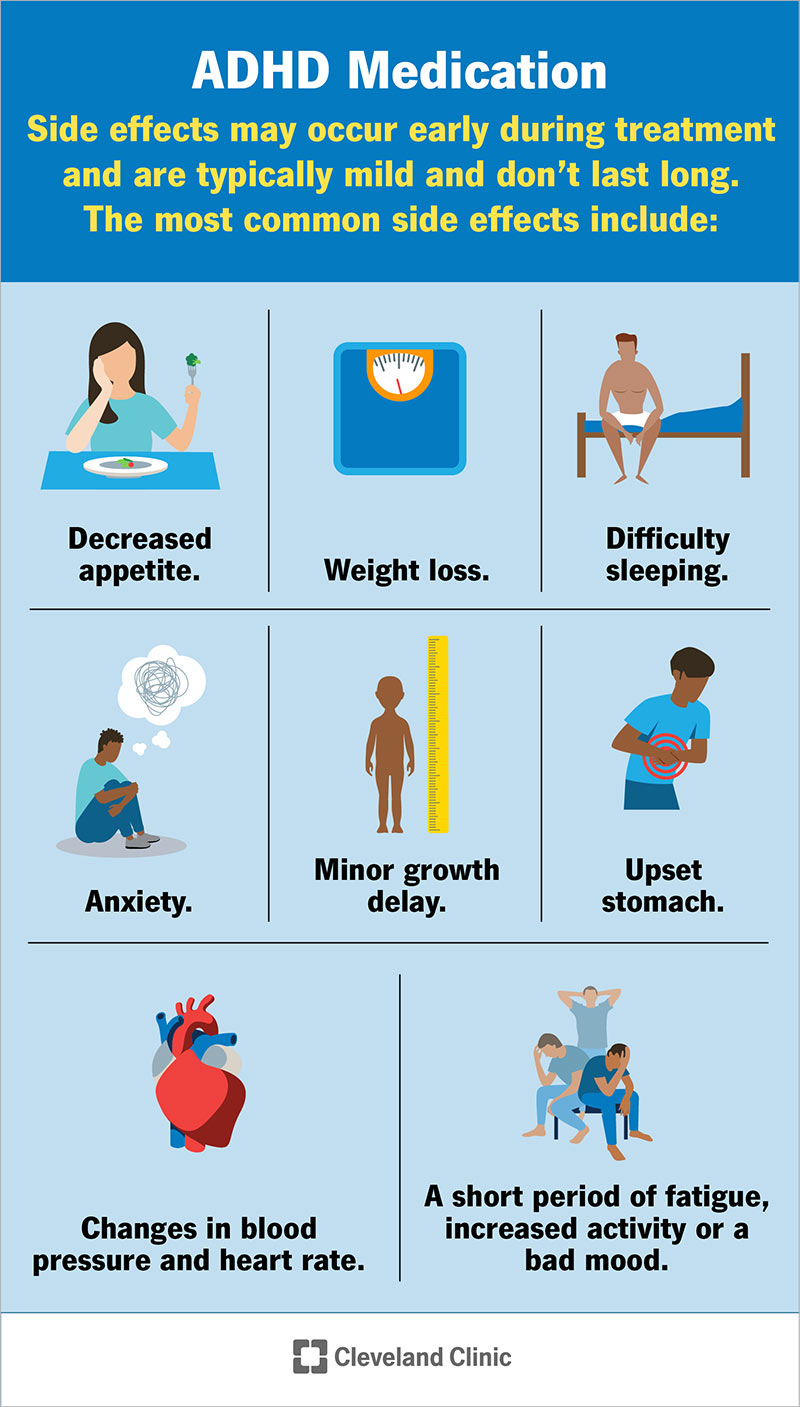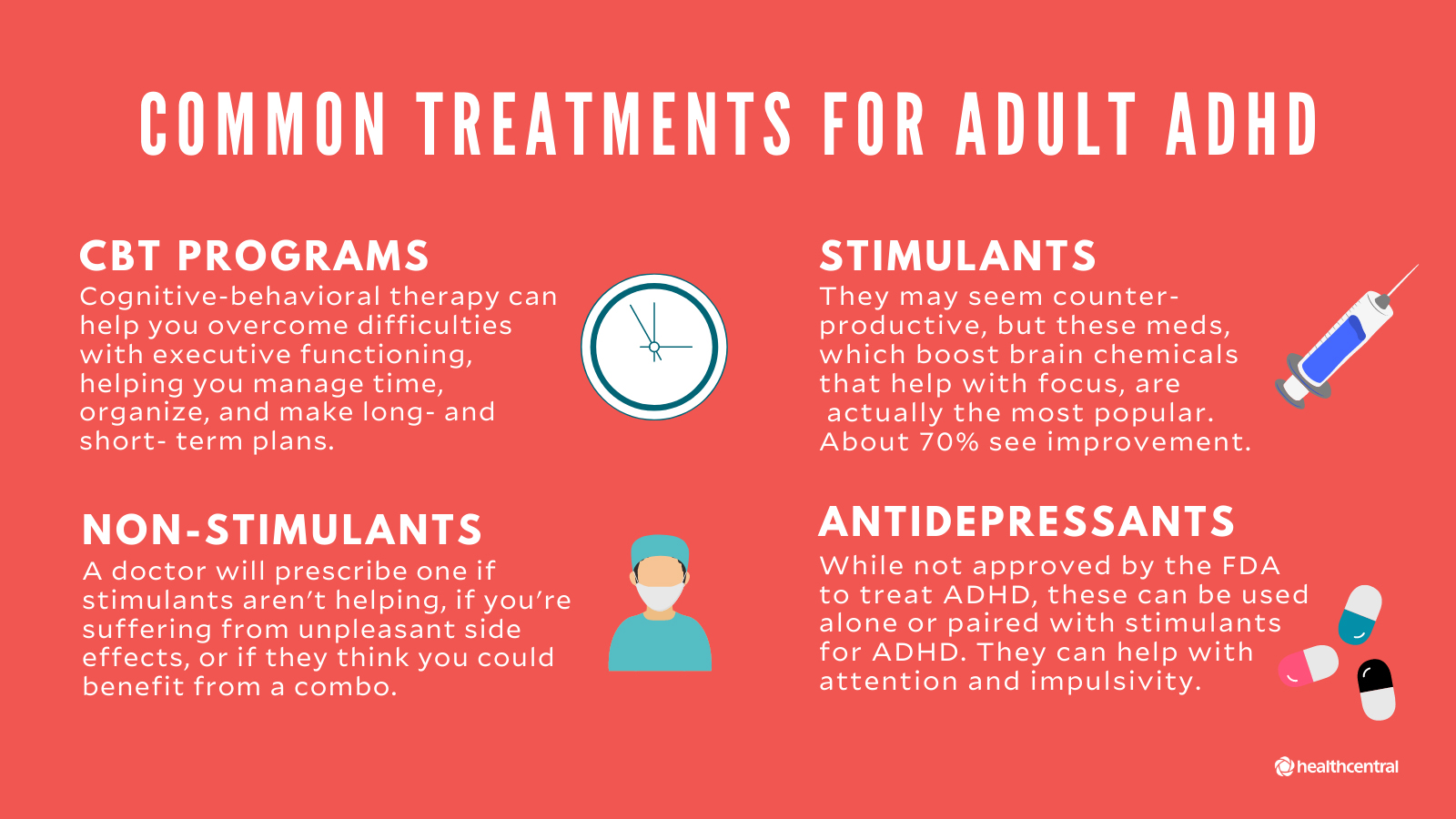Same Day Mental Health Services for Urgent Assistance and Care
Same Day Mental Health Services for Urgent Assistance and Care
Blog Article
Your Overview to Finding the Right ADHD Therapy for Enduring Results
Browsing the complexities of ADHD therapy requires a nuanced understanding of both the problem and the myriad choices available for reliable monitoring. It is vital to acknowledge that what benefit one person may not always yield the very same results for one more. Hence, a tailored technique-- incorporating specialist assistance, drug, behavioral techniques, and way of living adjustments-- ends up being extremely important. The journey toward determining the most ideal therapy strategy can be stuffed with challenges. What are the essential aspects that affect effective outcomes, and how can people guarantee they get on the appropriate path?
Understanding ADHD and Its Impact

In grownups, ADHD can result in challenges in workplace settings, impacting productivity, time administration, and interpersonal relationships. Often, undiagnosed or improperly took care of ADHD can add to co-occurring mental wellness problems, such as anxiety and clinical depression, more complicating a person's general well-being.
The social understanding of ADHD can vary, bring about stigma and misconception, which might hinder people from seeking assistance. As awareness grows, it is important to foster an atmosphere that advertises understanding and assistance for those impacted by ADHD, highlighting the demand for precise diagnosis and customized methods to alleviate its effect on daily life.
Review of Therapy Options
A detailed approach to dealing with ADHD includes a selection of choices customized to the individual's one-of-a-kind demands. These alternatives can broadly be classified into behavioral interventions, psychoeducation, and way of living modifications, alongside medicinal therapies that might be checked out later.
Behavior interventions, such as cognitive-behavioral treatment (CBT), concentrate on customizing certain behaviors and establishing coping approaches to take care of signs and symptoms properly. Psychoeducation plays an important role in encouraging both individuals and their family members by offering information regarding ADHD, its difficulties, and efficient approaches for assistance.
Way of living alterations can significantly impact ADHD monitoring. Routine physical activity, a well balanced diet regimen, and adequate sleep add to general well-being and symptom control. Mindfulness practices and relaxation strategies can also improve emphasis and reduce impulsivity.
Support groups and household therapy can sports counseling promote a sense of community and understanding, helping individuals feel much less isolated in their experiences. Each therapy alternative should be taken into consideration in conjunction with the person's preferences and scenarios, making sure a holistic technique that advertises lasting success. Eventually, the objective is to create a tailored treatment plan that deals with click reference the particular challenges connected with ADHD while improving total lifestyle.
Medication: Advantages And Disadvantages
Drug plays an essential duty in the treatment of ADHD, with countless choices offered that can substantially relieve signs for many individuals. Stimulants, such as methylphenidate and amphetamines, are commonly prescribed and have revealed efficiency in boosting focus, reducing impulsivity, and boosting overall habits. These drugs work by raising dopamine and norepinephrine levels in the brain, which are typically dysregulated in those with ADHD.
Nevertheless, the use of medication is not without its obstacles. Some people might experience adverse effects, consisting of sleep problems, reduced cravings, or enhanced link stress and anxiety. In addition, locating the ideal dose can be an experimental procedure, calling for close surveillance by medical care professionals. In addition, not all people reply to energizer medications, leading some to discover non-stimulant options, which may have a postponed onset of action or different side results.
It is crucial for individuals and their family members to evaluate these advantages and disadvantages meticulously. Balancing the benefits of symptom management against potential negative effects is essential for attaining optimal treatment end results. Collaboration with medical care companies can facilitate informed decisions, ensuring that medication is part of a thorough ADHD administration strategy.
Behavioral Treatment Strategies

One commonly utilized technique is Cognitive Behavior modification (CBT), which aids individuals identify and transform negative idea patterns that contribute to ADHD-related challenges. Therapist for ADHD. Via CBT, customers find out to set reasonable objectives, take care of time successfully, and develop business systems
One more reliable method is Moms and dad Administration Training (PMT), which educates parents on just how to strengthen positive behaviors and decrease adverse ones with regular discipline and communication methods. This approach cultivates a supportive home setting that urges behavior improvements.
Social skills training is likewise important, aiding people with ADHD navigate social communications a lot more efficiently. Role-playing and modeling proper behaviors can enhance social competence and lower anxiousness in social circumstances.
Way Of Life Adjustments for Better Administration
Exactly how can way of life changes dramatically improve the management of ADHD symptoms? Applying tactical way of living modifications can result in considerable renovations in focus, company, and emotional regulation for people with ADHD.
First of all, developing a structured daily routine aids in developing predictability, which can minimize sensations of overwhelm. Regular timetables for dishes, research study, and rest can boost day-to-day functioning.
Including routine exercise is likewise important, as workout has been revealed to boost dopamine levels, improving interest and inspiration (Therapist for ADHD). Going for a minimum of thirty minutes of moderate exercise most days can be helpful
Nourishment plays a pivotal duty. A well balanced diet plan rich in omega-3 fatty acids, whole grains, and protein can support cognitive function. Limiting refined sugars and caffeine may minimize signs and symptoms, as these can result in energy accidents and irritation.
Verdict
In final thought, finding the appropriate ADHD therapy demands a multifaceted approach that considers specific requirements and preferences. Collaboration with health care specialists and open interaction with support networks are vital components in navigating the intricacies of ADHD monitoring, ultimately leading to long-term outcomes and improved quality of life.
Report this page